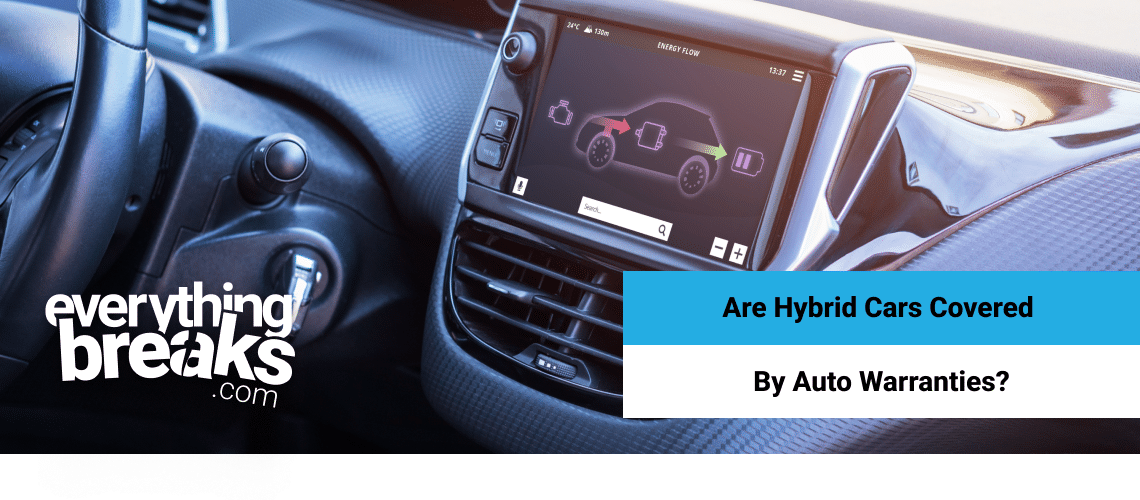As hybrid and electric vehicles (EVs) become more popular, many car owners are asking an important question: are hybrid cars covered by auto warranties? The answer is yes—but the specifics of what is covered and the benefits of having a plan vary depending on the type of auto protection plan. The truth is that hybrid and electric vehicles come with their own set of challenges.
The Challenges and Costs of Owning a Hybrid or Electric Vehicle
Hybrid and electric vehicles (EVs) are known for being fuel-efficient, eco-friendly, and in many cases, more cost-effective in the long run than traditional gas-powered cars. However, they also come with unique challenges, especially in terms of maintenance and repair costs. These vehicles use complex systems that combine traditional internal combustion engines with electric motors, generators, and high-capacity batteries.
Here are some of the main challenges and costs associated with owning a hybrid or electric vehicle:
- Battery Maintenance and Replacement: the battery in a hybrid or EV is one of the most expensive components to replace. Over time, the battery’s capacity may degrade, leading to reduced range and efficiency. Replacing a hybrid battery can cost anywhere from $1,000 to $8,000, depending on the make and model.
- Specialized Repairs: hybrid and electric vehicles require specialized tools and knowledge to repair. Finding a qualified technician can sometimes be a challenge, and labor costs for hybrid repairs are often higher than for traditional vehicles.
- Software and Electronics Maintenance: hybrid and EVs rely heavily on software and electronics to function efficiently. This includes electronic display monitors, inverters, and regenerative braking systems, all of which can fail and require expensive repairs.
Despite these challenges, hybrid and electric vehicle owners can protect themselves from the high costs of repairs by investing in an extended auto protection plan.
The Common Parts That Break on Hybrid Vehicles
Hybrid vehicles contain both traditional mechanical components and more advanced electronic systems. Some parts are more likely to break over time, especially as the vehicle ages. Below are some common hybrid vehicle parts that tend to need repairs and their associated costs:
- Hybrid Battery: as mentioned earlier, replacing the hybrid battery can be extremely expensive, with costs ranging from $1,000 to $8,000.
- Inverter: the inverter converts DC power from the battery to AC power for the electric motor. When this part fails, repairs can cost between $2,000 and $4,000.
- Electronic Transmission: hybrid vehicles use electronic transmissions to control the power flow between the gas engine and the electric motor. If the electronic transmission fails, the cost of replacement can range from $1,500 to $5,000.
- Electronic Display Monitor: hybrid cars often have sophisticated digital display systems that provide important information about the vehicle’s performance. Replacing or repairing a damaged display monitor can cost $1,000 or more.
- Generator(s): hybrid vehicles use generators to convert kinetic energy into electricity for charging the battery. Generator failure can result in repair costs ranging from $1,500 to $3,500.
Hybrid Parts Covered by an Auto Protection Plan
Many hybrid vehicle owners are surprised to learn that extended auto protection plans (sometimes referred to as extended warranties) can cover not just the traditional mechanical components but also the hybrid-specific parts that are prone to failure. At Everything Breaks, our Topline Auto Protection Plan covers:
- Electronic Display Monitors: this critical system provides essential data to the driver, and repairs can be costly. An extended service plan can cover the replacement or repair of this component.
- Generator(s): hybrid vehicles rely on generators to convert energy into electricity. Protection plans can cover the costs of replacing or repairing failed generators.
- Inverters: the inverter is a key part of the electrical system, and some extended warranties include coverage for this expensive component.
- Electronic Transmission: hybrid transmissions are complex, and repairs are costly. An extended auto protection plan can help offset the cost of repairs or replacements.
- Hybrid Transaxle: the hybrid transaxle combines the electric motor and transmission into a single component, which can be covered by certain protection plans.
Why Get an Auto Protection Plan for Your Hybrid Vehicle?
While hybrid vehicles are often seen as lower maintenance than traditional gas-powered vehicles, the advanced systems they rely on can be costly to repair when things go wrong. Here are a few reasons why it makes sense to get an auto protection plan for your hybrid:
- Protection Against High Repair Costs: with the costs of repairing hybrid-specific parts being so high, an extended warranty can save you thousands of dollars in the event of a major breakdown.
- Peace of Mind: knowing that your hybrid’s critical components are covered under warranty allows you to drive with confidence, knowing that you won’t face a financial hit if something goes wrong.
- Long-Term Vehicle Ownership: hybrid vehicles tend to last longer than traditional cars, but as they age, parts will wear out. A protection plan ensures that you’re covered as your vehicle gets older.
- Specialized Coverage for Hybrid Components: not all warranties cover hybrid-specific parts, so it’s essential to find a plan that includes these components. This allows you to focus on driving your vehicle without worrying about expensive hybrid-specific repairs.
- Resale Value: a vehicle with an extended protection plan can be more attractive to buyers, increasing its resale value. This is particularly true for hybrid cars, where buyers may be concerned about the costs of future repairs.
Cover Your Hybrid Vehicle Today
Hybrid and electric vehicle ownership comes with unique challenges, particularly when it comes to maintenance and repair costs. While hybrids offer a more eco-friendly and fuel-efficient driving experience, they also include advanced systems that can be expensive to fix. However, with an extended auto protection plan, hybrid vehicle owners can rest easy knowing that key components, including inverters, generators, electronic transmissions, and more, are covered.
If you own a hybrid vehicle or are considering buying one, it’s worth exploring the benefits of an extended protection plan to protect yourself from unexpected repair costs. Get in touch with us today to talk about your options.








